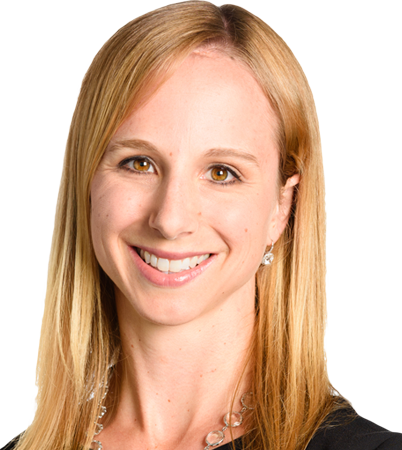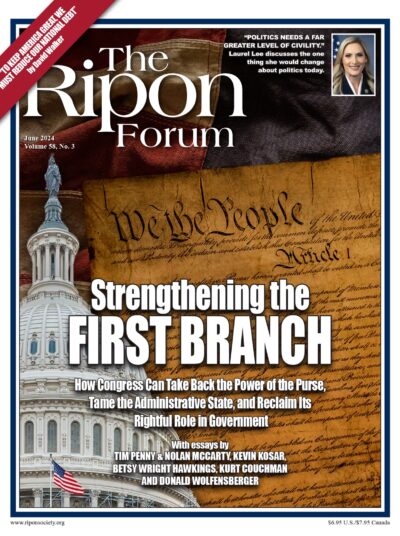
If Congress does nothing to address Social Security’s shortfalls, benefits will be cut by 21 percent, across the board beginning in just nine years—in 2033. That means that anyone who is of Generation X or younger will not receive a single full benefit. Even Baby Boomers and Silent Generation retirees will be subject to cuts.
Simply raising taxes to prevent these benefit cuts would require Social Security’s 12.4 percent tax rate to rise, immediately, to somewhere between 15.7 percent and 17.5 percent—the equivalent of an extra $2,500 to $3,800 per year in taxes for the median household.
Raising taxes only on the wealthy would require a top combined federal and state income tax rate of 66 percent. And that wouldn’t include a dime towards Medicare’s even larger shortfalls or the federal government’s annual multi-trillion-dollar budget shortfalls.
Instead of massive tax increases that would unnecessarily burden younger and future generations, Social Security reform should focus on restoring the program’s original intent.
As a Great Depression-era program, Social Security sought to protect against poverty in old age and to prevent younger generations from bearing the financial burden of that protection. Today, younger generations bear 100 percent of the program’s costs as every dollar of Social Security benefits comes straight out of current workers’ paychecks instead of from retirees past payroll taxes.
Instead of massive tax increases that would unnecessarily burden younger and future generations, Social Security reform should focus on restoring the program’s original intent.
This happened because Social Security benefits have continued to rise in real terms and Americans are living longer. When Social Security was enacted, life expectancy at birth was 61 and the program’s retirement eligibility age was 65, so many people never received Social Security. Today, life expectancy at birth is 79 and Social Security has an early retirement eligibility age of 62 and a normal eligibility age of 67.
Increased life expectancies, improved healthcare, and the shift away from physically demanding work have increased older Americans’ work capacity. A 2016 study published by the National Bureau of Economic Research looked at life expectancy, health, and employment since the 1970s and concluded that Americans could work an additional 2.5 years to 4.2 years, which would be equivalent to a 30 percent to 50 percent increase in employment among 65-year olds.
To restore Social Security’s intent, policymakers should gradually increase the normal retirement age from 67 to 69 or 70—moving the age up by one or two months per year—and index it to life expectancy.
The benefits of older workers staying in the workforce expand beyond Social Security’s solvency, and the additional income that Americans would earn. Older workers’ wisdom and experience provides an invaluable insight and mentorship to younger workers. And today’s labor market affords increasing opportunities for older workers to gradually ease into retirement, instead of abruptly exiting their careers.
While an increase in Social Security’s retirement age could disproportionately hurt people who have physically demanding jobs or who are in poor health, Social Security’s Disability Insurance program provides full Social Security benefits to individuals who lose the ability to work before reaching Social Security’s retirement age. Of course, a retirement age update should be paired with much-needed improvements to the Disability Insurance program.
While updating Social Security’s retirement age is an important component of reform, it would only solve about 20 percent to 30 percent of the program’s shortfalls. A more accurate inflation adjustment would solve another 20 percent to 25 percent of the program’s shortfalls.
And gradually shifting Social Security towards a universal benefit would cover the rest of the shortfalls and allow for a roughly 20 percent reduction in Social Security’s tax rate (that’s compared to the 27 percent to 41 percent tax increase that’s needed just to maintain current benefits).
As a social insurance program aimed at preventing poverty, it doesn’t make sense that Social Security provides the highest benefits to people with the highest incomes. Shifting to a universal benefit would increase benefits for about one-third of workers with the lowest incomes. And although middle- and upper-income earners would get less than the current formula stipulates, all but the highest-income earners would receive more than a non-reformed Social Security program will provide.
Shifting to a universal benefit would increase benefits for about one-third of workers with the lowest incomes.
By allowing workers to keep more of their earnings, these Social Security reforms would empower Americans to have more control over their finances before and during retirement. And coupling these reforms with an ownership option—allowing individuals to put a portion of their Social Security taxes into a personally-owned account—would help more Americans build wealth that they own and can pass on to their heirs.
Rachel Greszler is a senior research fellow in workforce and public finance in the Thomas A. Roe Institute for economic policy studies at The Heritage Foundation.




